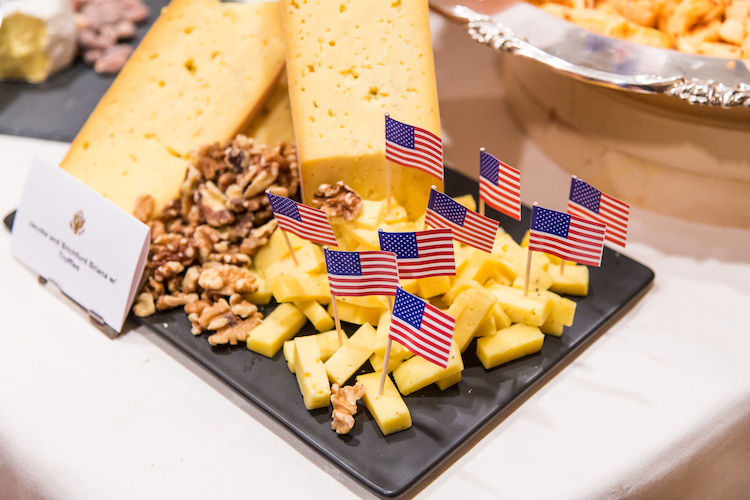
Four U.S. senators and four U.S. representatives have stepped forward to introduce the SAVE Act that would amend the Agriculture Trade Act of 1978. If passed by the 118th Congress, the SAVE Act, as in Safeguarding American Value-Added Exports, would go a long way to protect American food products from unfair trade practices by foreign countries.
The European Union (EU), and its use of geographical indications (GIs) has been the epicenter for these unfair trade practices. With a GI in place, the common food name can no longer be used by any other country governed by a trade deal. As a result, these unfair trade practices block U.S. agricultural products from international markets.
“By exploiting valid geographical indication protections, global competitors have for decades tried to limit competition, block imports, and restrict American-made products from being able to use common food and beverage names,” said Senator John Thune (R-S.D.) “I’m proud to lead this effort in the Senate to help level the playing field for U.S. producers by ensuring they can use common food names and preserve and expand foreign market access,” continued Thune.
Major support across the aisle
As outlined by Senator Thune, the SAVE Act could become a major piece of legislation that would have a dramatic impact in rural America. Even prior to passage, the SAVE Act already has made a significant impact in this era of partisan politics as this is a bipartisan effort that has two Democrats and two Republicans in both the Senate and the House introducing the legislation. They include U.S. Senators Thune, Tammy Baldwin (D-Wis.), Roger Marshall (R-Kan.), and Tina Smith (D-Minn.). On the House side, Dusty Johnson (R-S.D.), Jim Costa (D-Calif.), Michelle Fischbach (R-Minn.), and Jimmy Panetta (D-Calif.) have all worked closely on the legislation.
“Requiring U.S. producers to change the names of their food is confusing for consumers and costly to producers and manufacturers,” said U.S. Representative Johnson. “The SAVE Act ensures American producers retain vital access to foreign markets in a time that may be more critical than ever,” said Johnson in a press release.
“Monopolizing common food names could have major ramifications on American producers and our food supply chain,” stated Representative Costa. “This bipartisan bill will protect American goods from unfair trading practices that could minimize access to global markets and increase costs for consumers.”
Dairy has a lot at stake
This is a big issue for dairy and its growing ability to export dairy products. Some 25 years ago, the U.S. dairy sector was essentially a nonplayer on the export front. These days nearly 18% of the U.S. milk supply leaves the shores in the form of dairy products.
“When the right to use common food names is stripped by foreign governments, the harm ripples throughout the entire dairy supply chains,” explained Jim Mulhern, president and CEO of the National Milk Producers Federation. “This legislation will raise the ambition of the U.S. government to preserve the rights of U.S. dairy producers to continue using cheese names long established as generic.”
Gives permanent direction
The language would explicitly direct USDA Foreign Agricultural Services (FAS) to work with the U.S. Trade Representatives to include the protection of commonly used terms like parmesan, chateau, and bologna as a priority in international negotiations, shared a group of nines agricultural organizations that include NMPF, the U.S. Dairy Export Council, the American Farm Bureau Federation, and the Consortium for Common Food Names.
“Our Made in Wisconsin agricultural and food products are rightfully world-renowned for their quality,” said Senator Baldwin. “But, when foreign countries penalize our producers for using common food names like parmesan and cheddar, their unfair trade practices stunt the growth of Made in Wisconsin businesses on the international market,” continued the Senator who co-sponsored the legislation.








